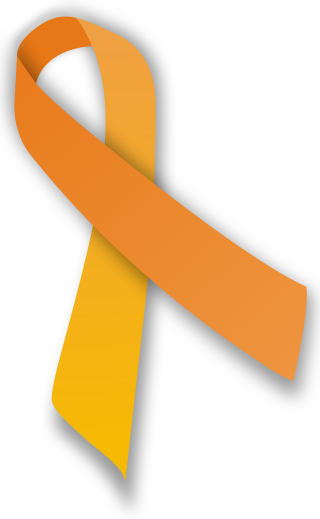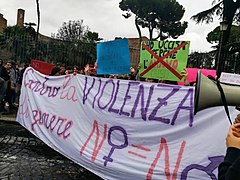
International Women's Day (IWD) is a holiday celebrated annually on March 8 as a focal point in the women's rights movement. IWD gives focus to issues such as gender equality, reproductive rights, and violence and abuse against women. Spurred by the universal female suffrage movement, IWD originated from labor movements in North America and Europe during the early 20th century.
Gender equality, also known as sexual equality or equality of the sexes, is the state of equal ease of access to resources and opportunities regardless of gender, including economic participation and decision-making, and the state of valuing different behaviors, aspirations, and needs equally, also regardless of gender. To avoid complication, other genders will not be treated in this Gender equality article.

The Convention on the Elimination of all Forms of Discrimination Against Women (CEDAW) is an international treaty adopted in 1979 by the United Nations General Assembly. Described as an international bill of rights for women, it was instituted on 3 September 1981 and has been ratified by 189 states. Over fifty countries that have ratified the convention have done so subject to certain declarations, reservations, and objections, including 38 countries who rejected the enforcement article 29, which addresses means of settlement for disputes concerning the interpretation or application of the convention. Australia's declaration noted the limitations on central government power resulting from its federal constitutional system. The United States and Palau have signed, but not ratified the treaty. The Holy See, Iran, Somalia, Sudan, and Tonga are not signatories to CEDAW.

The International Day of Peace, also officially known as World Peace Day, is a United Nations-sanctioned holiday observed annually on 21 September. It is dedicated to world peace, and specifically the absence of war and violence, such as might be occasioned by a temporary ceasefire in a combat zone for humanitarian aid access. The day was first established in 1981 and first observed in September 1982 and is kept by many nations, political groups, military groups, and people.

Harmony Day, an event officially expanded and renamed as Harmony Week for its 20th anniversary in 2019, is a government-declared observance celebrated annually on or around 21 March in Australia. It was introduced by the Howard government 1999, and coincides with the United Nations International Day for the Elimination of Racial Discrimination. The colour orange is associated with the day.
Women's Aid Organisation (WAO) is a Malaysian non-governmental organisation that fights for women's rights and specifically against violence against women. It was founded in 1982 and continues to play a leading role in the Malaysian women's rights movement working within the fields of advocacy, public education as well as law and policy reforms.
International Women's Year (IWY) was the name given to 1975 by the United Nations. Since that year March 8 has been celebrated as International Women's Day, and the United Nations Decade for Women, from 1976 to 1985, was also established.
International Day of Zero Tolerance for Female Genital Mutilation is a United Nations-sponsored annual awareness day that takes place on February 6 as part of the UN's efforts to eradicate female genital mutilation. It was first introduced in 2003.

The Center for Women's Global Leadership, based at Rutgers University, was founded in 1989 by Charlotte Bunch, the former executive director and an internationally renowned activist for women's human rights. Executive Director Krishanti Dharmaraj is also the founder of the Dignity Index and co-founder of WILD for Human Rights and the Sri Lanka Children's Fund. The former executive director, Radhika Balakrishnan, is now the faculty director, and a professor in the Department of Women's and Gender Studies at Rutgers, chair of the Board of the US Human Rights Network, and a board member of the Center for Constitutional Rights. Located on Douglass Residential College at Rutgers University, CWGL is a unit of International Programs within the School of Arts and Sciences and is a member of the Institute for Women's Leadership, a consortium of women's programs at Rutgers.
Defend International is a non-governmental organization focused on promoting and protecting human rights in the Middle East and North Africa.
The Declaration on the Elimination of Violence Against Women was adopted without a vote by the United Nations General Assembly in the 48/104 resolution of 20 December 1993. Contained within it is the recognition of "the urgent need for the universal application to women of the rights and principles with regard to equality, security, liberty, integrity and dignity of all human beings". It recalls and embodies the same rights and principles as those enshrined in such instruments as the Universal Declaration of Human Rights, and Articles 1 and 2 provide the most widely used definition of violence against women.
The United Nations Entity for Gender Equality and the Empowerment of Women, also known as UN Women, is a United Nations entity charged with working for gender equality and the empowerment of women. UN Women is charged with advocating for the rights of women and girls, and focusing on a number of issues, including violence against women and violence against LGBT people.
One Billion Rising is a global campaign, founded by Eve Ensler, to end rape and sexual violence against women. It was started in 2012 as part of the V-Day movement. The "billion" refers to the UN statistic that one in three women will be raped or beaten in her lifetime, or about one billion. The campaign expands each year with new themes and artistic actions. In 2024, the theme of the campaign is Rise for Freedom. "This year's campaign will escalate the collective actions of activists worldwide, and amplify their call for systematic changes towards ending violence against women and children once and for all," said OBR global director Monique Wilson.

International Day of the Girl Child is an international observance day declared by the United Nations; it is also called the Day of Girls and the International Day of the Girl. October 11, 2012, was the first Day of the Girl Child. The observation supports more opportunity for girls and increases awareness of gender inequality faced by girls worldwide based upon their gender. This inequality includes areas such as access to education, nutrition, legal rights, medical care, and protection from discrimination, violence against women and forced child marriage. The celebration of the day also "reflects the successful emergence of girls and young women as a distinct cohort in development policy, programming, campaigning and research."

The Global 16 Days Campaign is an international campaign to challenge violence against women and girls. The campaign runs every year from 25th November, the International Day for the Elimination of Violence against Women, to 10 December, Human Rights Day.
Sister Namibia, formerly known as the Sister Namibia Collective, is a feminist nonpartisan non-governmental organization (NGO) located in Windhoek, Namibia. The organization was established in 1989 on the eve of Namibia's independence from South Africa. Sister Namibia advocates for women's rights and engages in activities that promote full gender equality in a world free from violence, discrimination, and oppression. From its inception, the organization's main function has been to produce Sister Namibia Magazine. In the 1990s Sister Namibia expanded its operations to include educational programs, research, activism, media engagement, and cultural activities in support of women's rights.

Lepa Mladjenovic is a feminist, lesbian, anti-war activist who is a pioneer of second-wave feminism in Serbia. She is a feminist counselor for women survivors of male violence or lesbophobia, a workshop facilitator, a writer and lecturer and a member of several international boards and networks which are concerned about lesbian rights and violence against women. Mladjenovic is considered a symbol of women's activism in the former Yugoslavia. Born in Belgrade, she spent her childhood summer holidays in Sarajevo and at the Adriatic Sea. As of 2017, Mladjenovic lives in Belgrade.
Anna Costanza Baldry was an Italian social psychologist and criminologist. She was a professor at Università degli Studi della Campania Luigi Vanvitelli. An expert on issues related to violence against women and children, Baldry consulted with such organizations as the United Nations and NATO. For her contributions to society, she was awarded the Order of Merit of the Italian Republic.

Roses Revolution is an international movement against obstetric violence, originally founded in Spain in 2011. It observes November 25, the International Day for the Elimination of Violence against Women, additionally as "Roses Revolution Day". Women place roses in front of the delivery rooms or hospitals where they suffered varying forms of physical or psychological violence as a sign of protest.

Activism against violence against women aims at decreasing violence disproportionally committed against women.
















